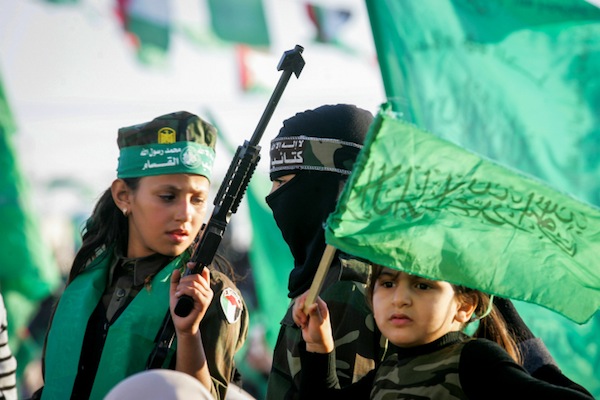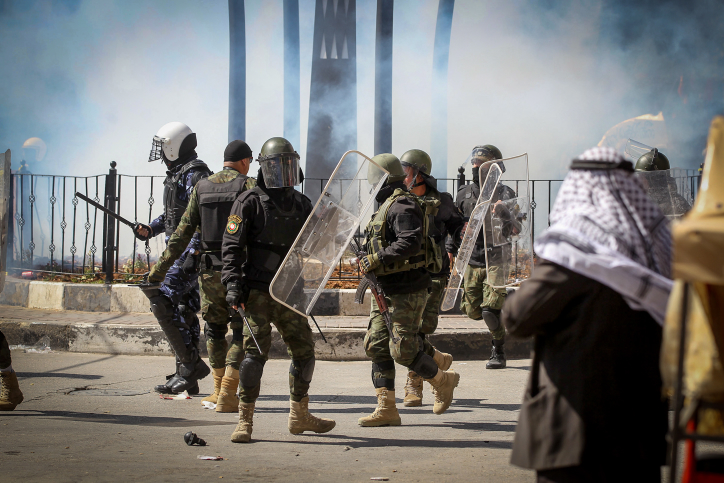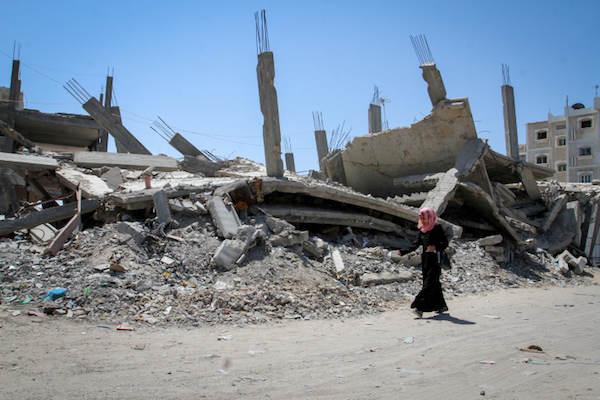The fact that Israel has no desire to destroy Hamas and re-occupy Gaza means the next round of fighting will end much like the previous ones: a ‘strategic tie’ with enormous human suffering in both Israel and the Strip.
By Doron Matza

It is impossible to understand what is happening in the Gaza Strip without understanding the following paradox: the relationship between Israel and Hamas appears as a “zero-sum game,” yet both sides cooperate with one another.
For over a decade, Israel and Hamas have maintained a relationship of both confrontation and reconciliation. From the Israeli point of view, Hamas’ presence in Gaza is not merely a constraint, it is also a significant strategic advantage. This is because the more than two million people in Gaza live under an organized regime that frees up Israel from maintaining a constant presence in the Strip and worrying about the civilian population there. And all this without totally forgoing control over Gaza’s security, economy, and borders.
Meanwhile, Hamas’ regime in Gaza, which split Palestinian rule into two separate geopolitical entities between the West Bank and Gaza, allows Israel to fend off pressure to sign a final-status deal, by claiming that that very split prevents it from reaching an arrangement when a central player on the opposing side does not accept the rules of the game, rejecting Israel’s very right to exist.
From Hamas’ point of view, Israel’s presence allows it to maintain its principal identity as the exclusive resistance movement in the entire Palestinian political system. Doing so positions Hamas as an alternative to Fatah, which, among other things, turned into a corrupt and hated movement — a process that eventually lead to its expulsion from the Strip. Furthermore, over the past few years Fatah has been maintaining tight-knit security coordination with Israel in the West Bank, effectively perpetuating the occupation.

This past decade has shaped the complex relations between Hamas and Israel. On the one hand, there is an element of mutual reconciliation and a deep recognition of the advantages that both sides provide the other, in order for both to promote their strategic goals. On the other hand, there is a mutual understanding that the main condition for ensuring that these goals are met is tied directly to maintaining the conflict between the two sides. Even more importantly, both sides manage the conflict so as not to create new conditions that will significantly alter the present reality. In other words, so that Hamas continues to rule Gaza.
This is the main reason that every military conflict between Israel and Hamas over the past decade, whether led by Olmert’s centrist government or Netanyahu’s right-wing governments, almost always ended at the exact same strategic point at which they started: a kind of “tie” in which Israel does not take over the Strip or destroys Hamas’ institutional, bureaucratic, and military infrastructure there.
Operation Protective Edge was a perfect example. Israel refrained from achieving a strategic victory in Gaza, instead preferring to focus its military efforts on exposing and destroying Hamas’ tunnels. This is because Israel feared that overthrowing the Hamas regime would lead to one of two scenarios: re-occupying the Strip and taking responsibility for the goings on there, or replacing Hamas with a Fatah-led regime, which could eventually place pressure on Israel to come to the negotiating table.

The need to manage the conflict in a way that maintains the strategic conditions of the Israeli-Palestinian relationship in Gaza is the main reason for short-term military confrontations, which wear out civilians on both sides. The effect on the civilian population — along with the scope of the intervention of both regional and international actors — are the sole parameters that affect when these confrontations come to an end, rather than reaching strategic and military goals.
Defense Minister Liberman’s threats that the IDF will be more intentional and aggressive the next time it faces off with Hamas is a testament to the fact that he understands the price of managing this kind of conflict — one in which there are no winners of losers. However, a lack of desire to destroy Hamas in such a way that will bring about the re-occupation of the Strip means that the fate of the next confrontation will end the same way as the previous ones: a strategic tie at the price of continual human suffering in Israel and Gaza.
Doron Matza is a member of the Research Program on Jewish-Arab Relations in Israel at the Institute for National Security Studies in Tel-Aviv. This article was first published in Hebrew by the Forum for Regional Thinking.

